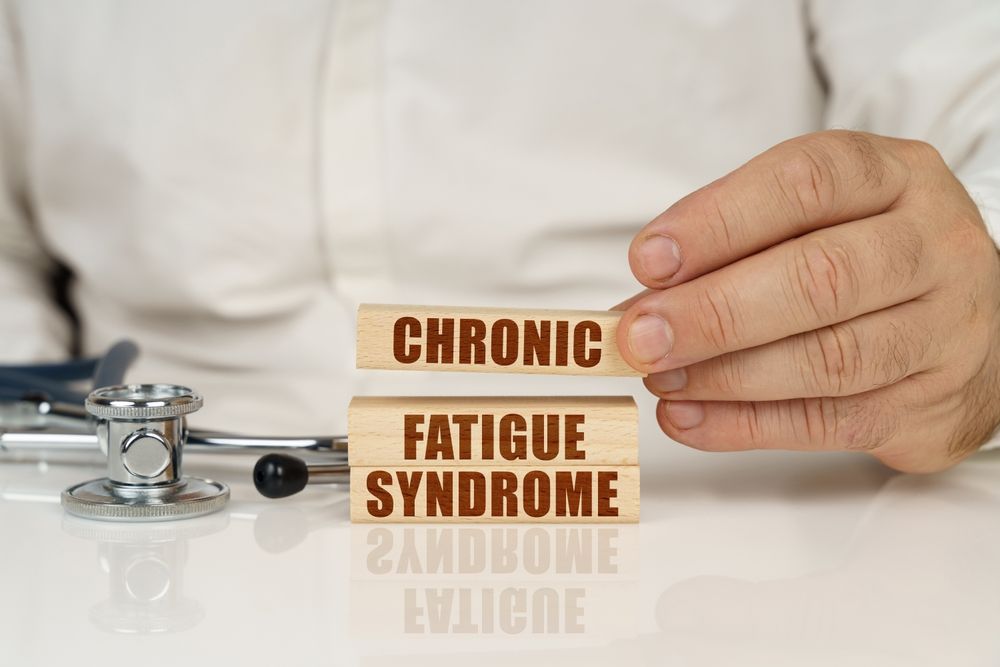IV Therapy for Chronic Fatigue: Nutrients to Combat Exhaustion

Joseph Lopez • September 25, 2024
Table of Contents

Understanding Chronic Fatigue Syndrome
Chronic Fatigue Syndrome (CFS) is a complex and debilitating disorder characterized by extreme fatigue that doesn't improve with rest. This condition can severely impact daily life, making simple tasks feel insurmountable. Despite significant research efforts, the exact cause of CFS remains elusive, and it can affect individuals differently, adding to the confusion surrounding the diagnosis and treatment.
Patients with CFS often report persistent fatigue that is disproportionate to any previous level of exertion. The fatigue is not simply a result of overworking oneself; it is a significant energy depletion that can last for six months or more, and often accompanied by a variety of other symptoms.
The Debilitating Impact of Chronic Fatigue
The impact of chronic fatigue is multi-dimensional. Emotionally, sufferers may experience anxiety, depression, and frustration due to their lack of energy and inability to participate in previously enjoyed activities. Socially, relationships can suffer as friends and family may struggle to understand the condition.
Professionally, CFS can lead to significant disruptions in career and daily responsibilities, leaving individuals fearing job security or missing out on opportunities for advancement. This constant battle not only affects physical health but also mental well-being.
Common Symptoms and Diagnosis
Common symptoms of CFS include muscle pain, joint pain, headaches, and difficulty concentrating, often referred to as "brain fog." These symptoms can come and go, leading to periods of relative wellness interrupted by debilitating fatigue.
The diagnosis of chronic fatigue syndrome involves ruling out other potential causes of fatigue, making it a challenging condition to define. Physicians may conduct a series of tests and rely on specific criteria to confirm the diagnosis. This often leaves patients feeling frustrated and misunderstood, as there is no definitive test for CFS.
The Role of Nutrients in Fighting Fatigue
Nutrients play a crucial role in energy production and overall body function. When the body lacks essential vitamins and minerals, it can lead to increased feelings of fatigue, affecting physical and cognitive performance. Understanding how specific nutrients contribute to energy can empower individuals in managing chronic fatigue.
Essential Nutrients for Energy Production
A variety of nutrients are essential for energy production in the body. Key players include:
- Iron: Crucial for transporting oxygen to cells, a deficiency can lead to fatigue.
- Vitamin B12: Vital for brain function and energy production; low levels can contribute to fatigue.
- Magnesium: Plays a role in over 300 biochemical reactions, including energy production.
- CoQ10: An important antioxidant that helps produce energy in cells.
Incorporating these nutrients into the diet or considering supplementation can help combat fatigue, particularly for those suffering from CFS.
Nutrient Deficiencies and Fatigue
Nutrient deficiencies can exacerbate the symptoms of chronic fatigue syndrome. For instance, low iron levels can lead to anemia, causing further fatigue and lethargy. Understanding personal health needs and getting tested for deficiencies can be instrumental in managing energy levels.
Dietary adjustments, layered with potential supplementation under a healthcare provider's guidance, can provide significant improvements in energy and overall well-being for chronic fatigue sufferers.
Introduction to IV Therapy
IV therapy, or intravenous therapy, refers to the administration of fluids, medications, and nutrients directly into the bloodstream via a vein. This method is often used in medical settings, but its application for wellness and chronic fatigue is gaining traction.
What is IV Therapy?
IV therapy involves placing a catheter into a vein to deliver necessary substances directly into the bloodstream. This method allows for faster absorption and can bypass the digestive system, making it particularly effective for individuals who may struggle to absorb nutrients through conventional dietary methods.
Different formulations can be customized based on an individual's specific health needs, providing an efficient means of delivering vitamins, minerals, and hydration.
The Science Behind IV Therapy
The science supporting IV therapy rests on its ability to provide immediate access to nutrients and fluids. When vitamins and minerals are delivered intravenously, they can reach cells more quickly than if taken orally, which is beneficial for individuals experiencing severe fatigue and deficiencies.
This direct delivery can enhance the body's ability to rehydrate and replenish essential nutrients crucial for energy production and overall health.
IV Therapy for Chronic Fatigue
For individuals experiencing chronic fatigue, IV therapy has emerged as a potential strategy for addressing nutrient deficiencies. Personalized IV formulations can include a blend of hydration, vitamins, and minerals aimed at boosting energy levels and alleviating symptoms associated with CFS.
How IV Therapy Works for Chronic Fatigue
When administered, IV therapy allows for rapid nutrient uptake without the delays associated with digestive absorption. This can result in an immediate boost in energy levels, which, for those suffering from CFS, can dramatically improve day-to-day functioning.
Moreover, IV therapy can help replenish vital nutrients that may be lacking due to dietary restrictions or absorption issues, directly addressing the energy crisis faced by many individuals with chronic fatigue.
The Benefits of IV Therapy for Chronic Fatigue
Patients undergoing IV therapy for chronic fatigue often report a plethora of benefits, including:
- Enhanced energy levels
- Improved focus and cognitive function
- Greater hydration
- Faster recovery from physical exertion
These benefits can lead to an improved quality of life, allowing individuals to actively participate in activities they previously struggled with.
Safety and Efficacy of IV Therapy
While many individuals find relief through IV therapy, questions regarding its safety and efficacy are paramount. It is crucial to approach this form of treatment with careful consideration and under the guidance of a healthcare professional.
Potential Side Effects and Risks
Though generally safe, IV therapy can come with potential side effects, including:
- Minor discomfort at the injection site
- Headaches
- Infection risk at the catheter site
- Allergic reactions to certain nutrients
Patients should be wary of these potential side effects and discuss any concerns with their healthcare provider prior to treatment.
Success Rate and Patient Satisfaction
Several studies highlight a high level of patient satisfaction with IV therapy for chronic fatigue. Many participants report a significant improvement in energy levels and overall well-being post-treatment. Nonetheless, individual results can vary widely, and ongoing evaluations are important to gauge the effectiveness of this therapy for maintaining energy levels over time.
Ultimately, for those battling chronic fatigue, IV therapy may offer a supportive strategy when combined with diet, exercise, and other wellness practices, paving the way for a more vibrant life.




